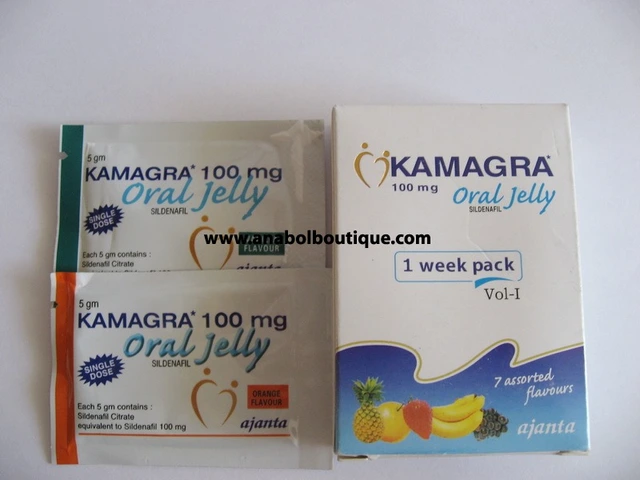Blood Pressure Medication Selector
Personalized Medication Recommendation
This tool helps you understand which blood pressure medications might work best for your specific situation based on common health factors. Always consult your doctor before making any medication changes.
When it comes to managing high blood pressure, Vasotec (Enalapril) is an ACE inhibitor that lowers blood pressure by relaxing blood vessels. If you’ve ever wondered whether a different pill might work better for you, you’re not alone. In this guide we’ll break down how Vasotec stacks up against the most common alternatives, what makes each drug unique, and how to decide which one fits your health profile.
Key Takeaways
- Vasotec (Enalapril) is an ACE inhibitor that works by blocking the conversion of angiotensin I to angiotensin II.
- Common alternatives include other ACE inhibitors (Lisinopril, Ramipril, Benazepril, Captopril) and an ARB (Losartan).
- Side‑effect profiles differ: cough is frequent with ACE inhibitors, while Losartan rarely causes it.
- Drug interactions with potassium‑sparing agents and NSAIDs are a key safety concern for all these medications.
- Choosing the right drug depends on kidney function, potassium levels, and personal tolerance to side effects.
What Is Vasotec (Enalapril) and How Does It Work?
Enalapril belongs to the class of ACE inhibitors. The drug stops the enzyme angiotensin‑converting enzyme (ACE) from turning angiotensin I into angiotensin II, a hormone that narrows blood vessels and raises blood pressure. With less angiotensinII, arteries stay relaxed, blood flows more easily, and the heart doesn’t have to pump as hard.
The usual starting dose is 5mg once daily, often increased to 10-20mg based on blood‑pressure response. Enalapril is taken by mouth, and food doesn’t affect absorption, which makes it convenient for most patients.
Alternative ACE Inhibitors - A Quick Look
Not all ACE inhibitors are created equal, but they share the same mechanism. Below are the most frequently prescribed alternatives.
Lisinopril is known for once‑daily dosing and a wide therapeutic window. Ramipril has strong evidence for reducing cardiovascular mortality in high‑risk patients. Benazepril is often chosen for patients with mild kidney impairment because it’s less dependent on renal excretion. Captopril is the oldest ACE inhibitor and works quickly, but it requires multiple daily doses.
Beyond ACE Inhibitors - The ARB Option
If a lingering cough makes you hesitant about ACE inhibitors, Losartan offers a similar blood‑pressure drop without the cough. Losartan belongs to the Angiotensin II receptor blocker (ARB) class, which blocks angiotensinII at the receptor level instead of stopping its formation.
Another non‑ACE option is Hydrochlorothiazide, a thiazide diuretic. It works by making the kidneys excrete more salt and water, lowering blood volume. While not an ACE inhibitor, it’s often combined with one for better control.
Side‑Effect Profiles - What to Expect
All ACE inhibitors, including Enalapril, share a few common adverse events:
- Cough: A dry, persistent cough occurs in 5‑20% of users and is the most cited reason for switching drugs.
- Hyperkalemia: Elevated potassium levels can happen when ACE inhibitors are taken with potassium‑sparing diuretics or supplements.
- Angio‑edema: Swelling of the lips, tongue, or throat is rare but potentially life‑threatening.
Losartan rarely triggers cough, making it a go‑to for patients who can’t tolerate ACE inhibitors. However, ARBs can still raise potassium, so the same monitoring applies.
Thiazide diuretics like Hydrochlorothiazide bring different concerns: increased urination, low potassium (hypokalemia), and higher blood‑sugar levels.
Comparative Table: Vasotec vs. Common Alternatives
| Drug | Class | Typical Dose | Main Side Effects | Notable Interactions |
|---|---|---|---|---|
| Vasotec (Enalapril) | ACE inhibitor | 5‑20mg daily | Cough, hyperkalaemia, angio‑edema | Potassium‑sparing diuretics, NSAIDs, lithium |
| Lisinopril | ACE inhibitor | 10‑40mg daily | Cough, hyperkalaemia | Potassium supplements, ARBs |
| Ramipril | ACE inhibitor | 2.5‑10mg daily | Cough, dizziness | Potassium‑sparing agents, NSAIDs |
| Benazepril | ACE inhibitor | 5‑40mg daily | Cough, renal impairment | Potassium‑rich foods, diuretics |
| Captopril | ACE inhibitor | 12.5‑150mg divided | Cough, taste alteration | Potassium supplements, alcohol |
| Losartan | ARB | 50‑100mg daily | Dizziness, rare cough | Potassium‑sparing diuretics, NSAIDs |
| Hydrochlorothiazide | Thiazide diuretic | 12.5‑50mg daily | Frequent urination, low potassium | ACE inhibitors (potassium risk), lithium |
How to Choose the Right Medication for You
Picking a blood‑pressure pill isn’t a one‑size‑fits‑all decision. Here’s a quick decision tree you can follow:
- Do you have a persistent dry cough? If yes, consider switching from any ACE inhibitor to an ARB like Losartan.
- What’s your kidney function? For mild renal impairment, Benazepril or a lower dose of Enalapril may be safer because they rely less on kidney clearance.
- Are you on potassium‑rich supplements or a potassium‑sparing diuretic? If so, monitor potassium closely or choose a drug with a lower hyperkalaemia risk (e.g., Captopril at low dose).
- Do you need a once‑daily pill? Lisinopril, Ramipril, and Losartan all work well once a day, while Captopril usually needs two to three doses.
- Is cost a major concern? Generic versions of Enalapril, Lisinopril, and Hydrochlorothiazide are often the cheapest options on the UK NHS formulary.
Always discuss these factors with your GP or cardiologist. They’ll run blood tests (creatinine, potassium) and may adjust doses based on your response.
Practical Tips & Common Pitfalls
- Never skip your morning dose. Missing a dose can cause a rebound rise in blood pressure, especially with short‑acting ACE inhibitors.
- Stay hydrated, but avoid excessive salt. Even on medication, high sodium can blunt the effect.
- Watch for over‑the‑counter NSAIDs. Ibuprofen can reduce the blood‑pressure‑lowering effect of ACE inhibitors and raise potassium.
- Report any swelling of lips or tongue immediately. Angio‑edema requires urgent medical attention.
- Schedule regular blood‑work. Checking kidney function and electrolytes every 3-6months keeps you safe.
Frequently Asked Questions
Can I take Vasotec with a thiazide diuretic?
Yes, many doctors prescribe Enalapril together with Hydrochlorothiazide. The combo often achieves better blood‑pressure control, but you’ll need regular potassium checks because both drugs can increase potassium levels.
Why does Enalapril cause a cough?
Enalapril raises bradykinin levels in the lungs, which irritates the airway and triggers a dry cough. Switching to an ARB like Losartan eliminates this side effect for most patients.
Is it safe to take Enalapril during pregnancy?
No. ACE inhibitors are classified as pregnancy‑categoryD because they can cause fetal kidney damage and low amniotic fluid. Pregnant women should use alternative antihypertensives like methyldopa.
How long does it take for Vasotec to start working?
Blood‑pressure reduction is usually noticeable within 1-2weeks, with the full effect reached after 4-6weeks of consistent dosing.
Can I switch from Enalapril to Losartan without a wash‑out period?
Yes, most clinicians allow a direct switch because both classes act on the renin‑angiotensin system. However, monitor blood pressure and potassium for a few days after the change.
Next Steps
If you’ve identified a side effect that’s bothering you, book an appointment with your GP and bring this comparison sheet. Ask about a blood test to check potassium and kidney function before any switch.
For those exploring cost‑saving options, check the NHS prescription price calculator - generic Enalapril is often the cheapest ACE inhibitor available.
Finally, keep a simple log of your daily blood‑pressure readings. Seeing the numbers improve (or not) will guide you and your doctor toward the best medication choice.





Tom Green - 17 October 2025
Hey folks, great to see this detailed comparison of Vasotec and its cousins. Enalapril is a solid first‑line choice for many patients because it’s well‑studied and generally affordable. If you’re worried about the dry cough, remember that switching to an ARB like Losartan is a common strategy that many clinicians recommend. Keep an eye on your potassium levels and kidney function-regular labs are the best safety net. And don’t forget to take your dose at the same time each day to maintain steady blood pressure control.
Emily Rankin - 18 October 2025
Imagine the bloodstream as a river, once tranquil, now forced through a narrow canyon by the tyrant Angiotensin II. Enalapril acts like a gentle dam, easing the flow and letting the heart breathe. It’s poetic how a single molecule can soften the tension that grips our vessels. Yet, if the cough becomes a relentless echo, the ARB steps in as a heroic ally, silencing the annoyance without compromising the peace. This dance of chemistry and compassion reminds us that medicine is as much art as science. Stay optimistic-your body will find its rhythm.
Rebecca Mitchell - 19 October 2025
Enalapril works fine but the cough can ruin your night.
Lauren Sproule - 21 October 2025
Hey love i totally get it the cough can be super annoying especially at night its like a tiny hamster squeaking in your throat lol but the good news is that losartan usually doesn't cause that at all so many folks switch and feel much better just keep talking to your doc and get those labs done ok?
CHIRAG AGARWAL - 22 October 2025
Honestly this guide is okay but it feels like you just copy‑pasted a pharmacy brochure and tossed in a table for flair. Who even reads all those bullet points? If you want real talk, tell us which drug actually saves lives, not just which one is cheapest. Also, why keep repeating the same side‑effect list? Give us something fresh, maybe some patient stories or real‑world adherence data. And stop acting like every doctor is a mind reader-mention dosage adjustments for the elderly.
genevieve gaudet - 23 October 2025
Chirag you raise good points and i think we can blend the science with some human experience. In many cultures, especially in my family, blood pressure meds are seen as a rite of passage, a sign that we are taking responsibility for our elders. So the choice between enalapril and losartan is not just about coughs; it's about trust in the healthcare system and access to affordable generics. Sharing anecdotes from patients who switched and felt better could make the guide more relatable. Also, a note on diet-Mediterranean patterns can complement these meds nicely.
Patricia Echegaray - 24 October 2025
Don't be fooled by the pharmaceutical peddlers who push ACE inhibitors like Vasotec as if they're the only salvation. Big Pharma knows the cough side‑effect will drive you straight into their ARB market, where they cash in on brand‑name premiums. They hide the truth about long‑term kidney strain and subtly manipulate guidelines to keep us dependent. Wake up, question whose agenda is behind the "standard of care" and demand transparent, independent research before you swallow another pill.
Miriam Rahel - 26 October 2025
While Ms. Echegaray’s concerns about industry influence merit consideration, it is essential to reference peer‑reviewed studies that have consistently demonstrated the safety and efficacy of ACE inhibitors across diverse populations. Meta‑analyses published in reputable journals, such as the Journal of Hypertension, show no statistically significant increase in renal impairment when enalapril is prescribed within guideline‑recommended dosing parameters. Moreover, regulatory agencies worldwide require rigorous post‑marketing surveillance to monitor adverse events, including the relatively rare occurrence of angio‑edema. Therefore, clinicians should continue to evaluate individual patient risk factors rather than categorically reject an entire drug class based on speculative allegations.
Samantha Oldrid - 27 October 2025
Oh great, another "must‑read" guide that tells me to check my kidneys. Because I have nothing better to do than schedule more blood tests.
Valerie Vanderghote - 28 October 2025
Listen, I get that the idea of routine labs can sound like a bureaucratic nightmare, but the reality is that without those numbers you’re essentially flying blind in a storm, and nobody wants to crash. When you start a medication like enalapril, your kidneys are the silent workhorses that filter out excess potassium, and any imbalance can creep up unnoticed until it’s too late. The cough, while annoying, is just the tip of the iceberg; behind it may lie subtle shifts in electrolyte levels that only a simple blood draw will reveal. I’ve seen patients who ignored the warning signs, thinking they were just a “phase,” only to end up in the emergency department with hyperkalemia that could have been prevented. Moreover, the interaction with over‑the‑counter NSAIDs is a sneaky trap – many people pop ibuprofen for a headache and never consider it could blunt the blood‑pressure‑lowering effect of their ACE inhibitor. The same goes for potassium‑rich supplements; a well‑intentioned multivitamin can push you over the edge if you’re already on a potassium‑sparing diuretic. It’s not about giving the pharma industry a free pass; it’s about taking ownership of your health in a world where information is abundant but attention is scarce. So schedule that lab, keep a log of your readings, and bring the results to your next appointment – think of it as a partnership with your doctor rather than a chore. And if the process feels draining, remember that the peace of mind you gain from knowing you’re not flirting with dangerous side effects is priceless. In short, the inconvenience of a blood test is a small price to pay for the security of a well‑managed circulation, especially when you consider the alternative: a silent, potentially fatal complication. Your body will thank you, and your future self will appreciate the foresight you exercised today.